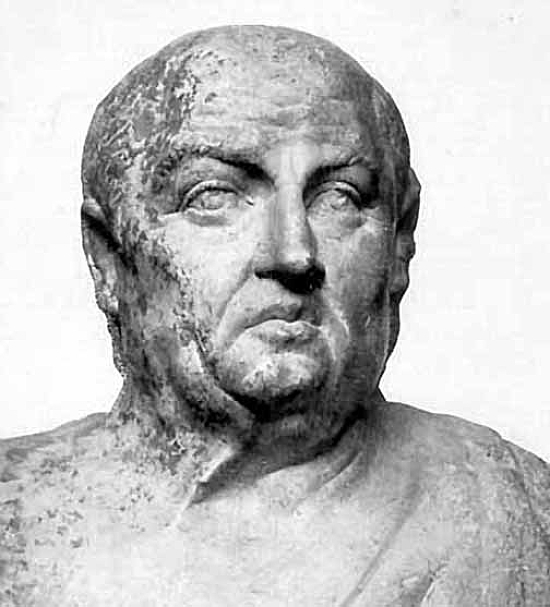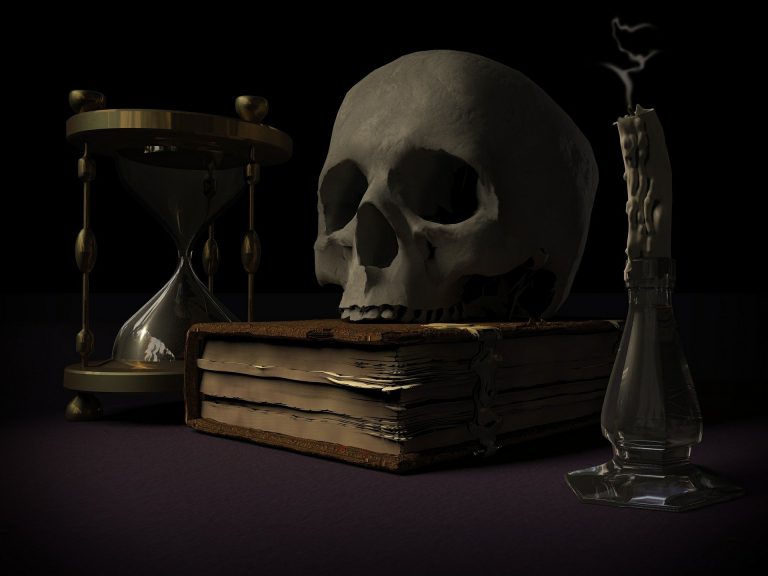
The notion there’s no afterlife after death, only an oblivious nothingness absent of consciousness, was an idea already familiar in the ancient world. The Greek philosophers entertained this view of death in their meditations and debates, but it was the epicureans who were at the forefront at espousing this contentious view. Though within stoicism there seemed not to have been a universal agreement on what happens after death – in fact it depends on which stoic thinker you are reading. In Marcus Aurelius’ view for example he didn’t have a definite opinion, but was open to all possibilities:
“On death, either dispersal, if we are atoms; or, if we are a unity, extinction or a change of home.” – Meditations, Book 7;32
And with Seneca’s stoic philosophy, we see a more definite view, he seemed to have adopted the same view as his rivals at the Epicurean school – no afterlife; death is final. For the sake of this subject, we will focus on Seneca’s view of death inspired mainly by his consolation letter to Marcia, the grieving mother who lost her son; Metilius.
Here’s a quote by Seneca:
“And what is death? It is either the end, or a process of change. I have no fear of ceasing to exist; it is the same as not having began” – Seneca
We see from the above quote from his moral epistles that Seneca has a definite opinion about death. He goes on and tells the grieving Marcia that the nether world is a fantasy cooked up by the fables of poets; he said that death is neither a good thing nor a bad thing, because fortune requires something for bad and good events to happen, but since death is a state of nothingness then fortune has nothing, no materials to work upon.
“Death is a release from and an end of all pains: beyond it our suffering cannot extend: it restores us to the peaceful rest in which we lay before we were born”
Seneca said if anyone pities the dead, he ought also to pity those who have not been born. Though of course bearing in mind that death is the end of something which was born, it stills stands that we are beings that have come into existence from non-existence. After our transition back into non-existence marked by death, history will still be made. The newspapers and media of the future will still be cataloguing events, but we will never see how that world will unfold.
History as obvious to us
This magnificent quote here by American writer Mark Twain:
“I do not fear death. I had been dead for billions and billions of years before I was born, and had not suffered the slightest inconvenience from it.”
Though a short sentence and from a writer living in 1800s America, this attitude by Mr Twain would echo wholeheartedly as a stoic view, rich in its attitude towards death.
What specifically is this attitude? It is one of awareness, the awareness in knowing that before our birth extends a long stretch of time encompassing all of human history. Those past events played out and became part of history, only to be known to us from the historians who wrote them down to be stored in the records. And in those past histories we were nowhere to be found, not as a participant of the various epochs that divided human history or also as a living inhabitant of this planet.
Historical peoples suffered, and oh did they suffer. They endured: the scars of torture, Roman enslavement; liberty turned to slavery, raids from Hun savages, vanquished by the wrath of nature like Pompeii, the accusative finger of the inquisition, put to death by rulers who just happened to be in a bad mood, sacrificed to Mesoamerican sun gods, preindustrial famines, entire villages plundered and left bare, the infamous black death and all the other plagues before modern medicine… the list could go on but the point is made.
Throughout history the human suffering experienced was voluminous in its variety and painful in its severity and we had not received any grief from it. We could never be forced to labour as a slave from it or bear witness to its carnival of misery, because all of that and the entire world was oblivious to us.
Author’s thoughts?
If I had to decide ‘what happens after death?’ then just like Seneca, Mark Twain and the Epicureans too, I think it’s reasonable to take the view that we are going to return to the same state of oblivion or non-existence just as before our birth – in other words, I think death is final, no reincarnation and no afterlife. Should death be qualitatively the same as non-existence, then we have nothing to fear because consciousness will be extinguished and with it all sensation will cease to be experienced. There is no anything afterwards and things will not be any different than before we were born.
I can describe using words what the fruit tastes like, but the only sure way to know is through direct experience by picking it up and eating it. In the same way, whatever I think may happen is only just that – thinking; thinking about death is not the direct realisation of it.

